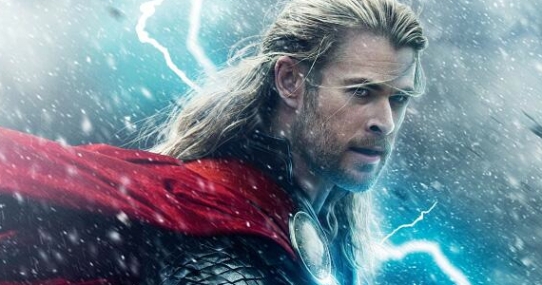Since before written language, humans have been basking in the residual glory of the hero archetype. The hero model of storytelling has been used across cultures from Greek mythology, to Roman kings, to religious characters depicted in Christianity.
~
Although the standard hero has evolved quite a bit over time, the core elements are still intact. A hero is self-sacrificing, 100% independent and courageous in the face of adversity. He, yes he, is predisposed to rescue the morally (and often physically) inferior (either a woman or common folk) and the less fortunate.
~
Nowadays, heroism appears to be a bit more removed from our world and reserved only for fantasy genre books or films. Prime examples are pictured: Thor and the Greek God, Hercules, if you’re into Disney. In reality, the hero worldview is just as culturally ingrained as it was 3000+ years ago.
~
Heros of recent history may not be as glamorous as kings or gods, but in many ways we still treat them as such. We use the same  storytelling technique in high school history class as ancient kings used to selectively glorify and filter their legacy. They are framed as objective recounts, yet are both intentionally and subconsciously restricted.
storytelling technique in high school history class as ancient kings used to selectively glorify and filter their legacy. They are framed as objective recounts, yet are both intentionally and subconsciously restricted.
 storytelling technique in high school history class as ancient kings used to selectively glorify and filter their legacy. They are framed as objective recounts, yet are both intentionally and subconsciously restricted.
storytelling technique in high school history class as ancient kings used to selectively glorify and filter their legacy. They are framed as objective recounts, yet are both intentionally and subconsciously restricted.~
One common example is Abraham Lincoln, the designated face of the Civil War. Particularly in grade school, a huge emphasis is placed on his moral righteousness (Honest Abe) and the abolishment of slavery is portrayed as solely his valiant act of joostice – involuntary reference sorry – as if others we’re joost watching from the bleachers. And of course everyone couldn’t be fully credited. The point is that we tend to choose a single man to mark the event and promote him to no end while skimming over the unpleasant details.
~
The consequences of hero-centered storytelling are particularly evident in the story of Rosa Parks and the Montgomery Bus Boycott. The traditional story is inaccurate for a number of reasons and not surprisingly is framed around the memorable, but limited hero model.
~
I don’t doubt that Ms. Parks was daring, ruthlessly moral and whatever else makes a hero; still, it doesn’t mean that she was not part of an existing network and plan. The inverse of a hero is the community, which has been all but screened out of history.
~
The famous bus incident is portrayed as the first even though others, herself included, had already refused to give up their seats in the past. Likewise, those who made her training possible, prepared her for that moment, were already organizing in the community and setting the essential groundwork for the Civil Rights Movement are referred to as bandwagon supporters, if mentioned at all.
~
So, why does this matter? Omitting the social context from the story undermines the role of the black community along with the reason the act was ultimately successful. After all, it would be too risky for those in power to publicize the actions that actually lead to social change and shifts in power. Instead, students know Ms.Parks as a admirable, but unrelatable, special case who by sheer luck landed in the perfect circumstances.
~
As Herbert Spencer put it “You must admit that the genesis of the great man depends on the long series of complex influences which has produced the race in which he appears, and the social state into which that race has slowly grown….Before he can remake his society, his society must make him.”
~
In reality, social change takes careful planning, strategy, and a citizens that are not waiting around for a hero to save them. Rosa Parks was a key player in inciting the Civil Rights Movement, however we should not forget the rest. Not that we shouldn’t a quality hero conquest as needed – as long as it’s on Netflix instead of in our history textbooks.


http://www.scribd.com/doc/148611188/Eternally-Bad-Goddesses-With-Attitude
^this book is a great tribute to all the badass women archetypes in many ancient cultures and religions who have gotten left out of the herstories (but mainly histories) of today. also, written by trina robbins you can’t go wrong aha
check out her website here: http://www.trinarobbins.com/Trina_Robbins/Welcome.html
LikeLiked by 1 person
“The schools we go to are reflections of the society that created them. Nobody is going to give you the education you need to overthrow them. Nobody is going to teach you your true history, teach you your true heroes, if they know that that knowledge will help set you free.”
–Assata Shakur
LikeLiked by 1 person